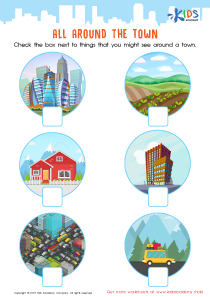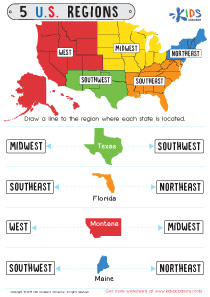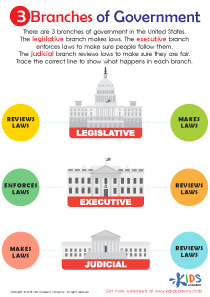Vocabulary expansion Normal History Worksheets for Ages 6-8
5 filtered results
Difficulty Level
Grade
Age
-
From - To
Subject
Activity
Standards
Favorites
With answer key
Interactive
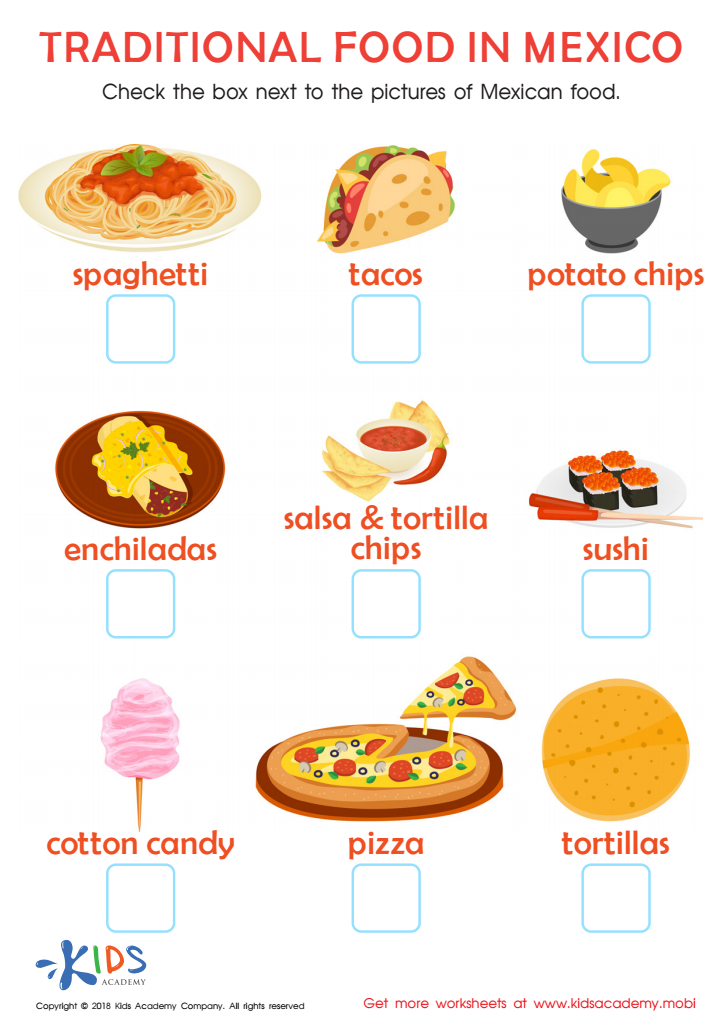

Traditional Food in Mexico Worksheet
This colorful worksheet offers a great opportunity to learn about traditional Mexican foods, build vocabulary and practice visual discrimination. As many of the words are not phonetic, this practice can help improve fluency, vocabulary and comprehension when encountered in reading. Culturally diverse, it's great for readers looking to expand their knowledge.
Traditional Food in Mexico Worksheet
Worksheet
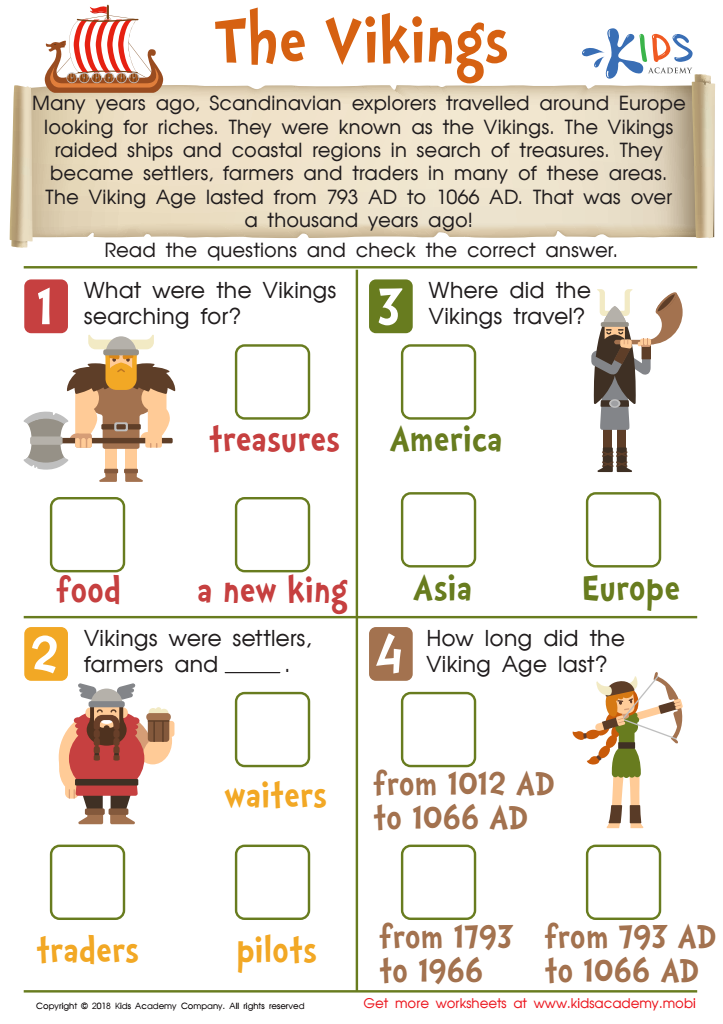

The Vikings Worksheet
This free worksheet introduces kids to the Vikings. They explore Europe looking for treasures, raiding, farming, settling, trading, and ruling 793AD-1066AD. With multiple-choice questions and colorful pictures, they'll learn and have fun!
The Vikings Worksheet
Worksheet
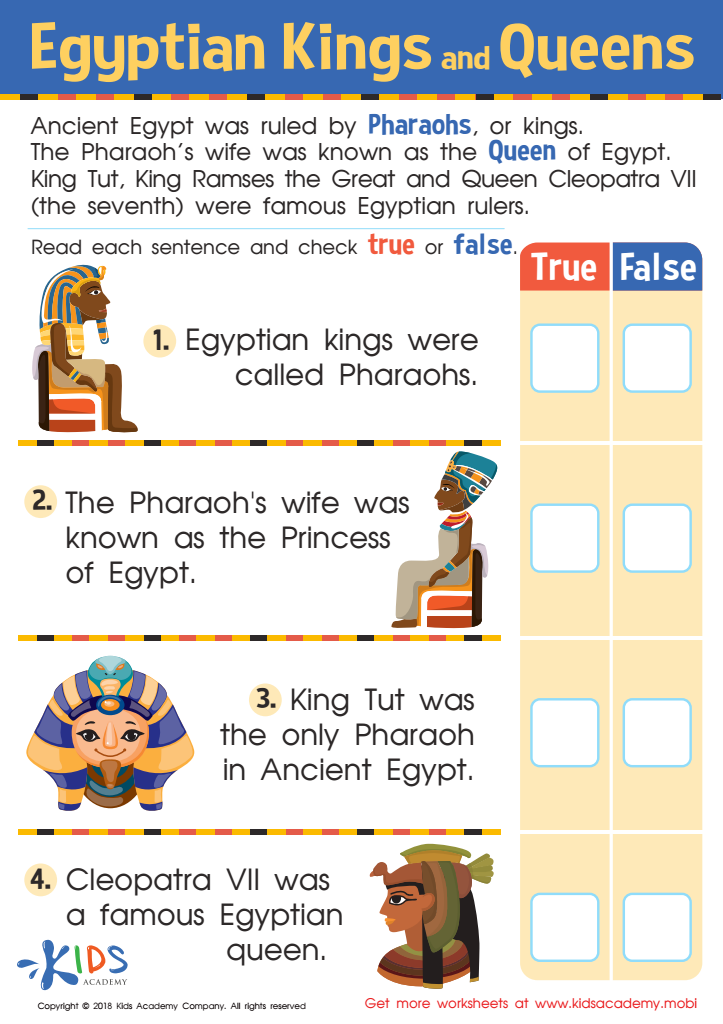

Egyptian Kings and Queens Worksheet
Want to help your child brush up on world history lessons? Kids Academy offers a fun social studies worksheet on Ancient Egyptian rulers. From King Tut to Queen Cleopatra, they'll learn about famous Egyptian rulers not found in modern times. The activity includes a brief description followed by true/false questions. Give it a try and see just how much your child knows!
Egyptian Kings and Queens Worksheet
Worksheet
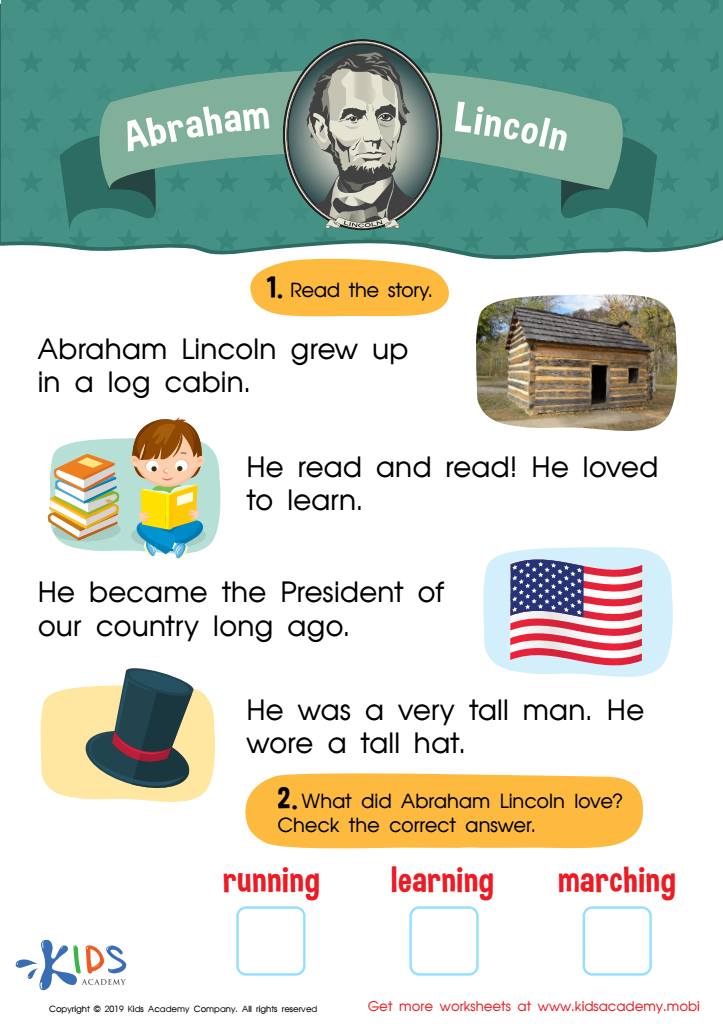

Abraham Lincoln Worksheet
Let your kids listen to interesting stories while having fun! Read the short story in this worksheet, point to the picture representing each sentence, then ask the questions and check the answers. Doing this will help your children learn new things and build their vocabulary.
Abraham Lincoln Worksheet
Worksheet
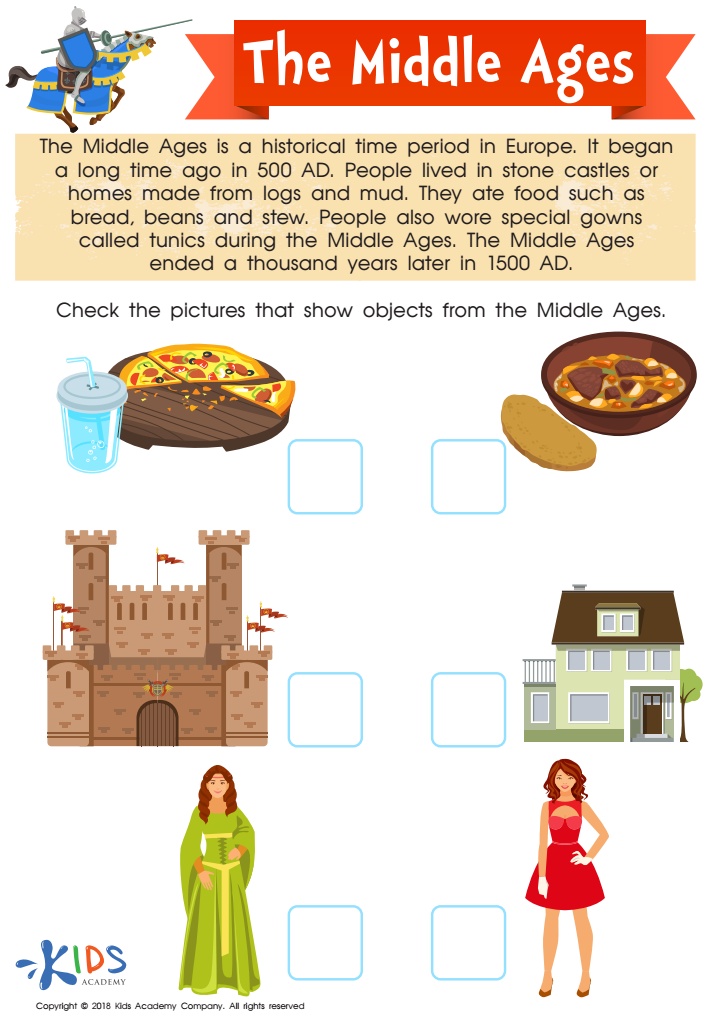

The Middle Ages Worksheet
History can be made exciting with this PDF! It encourages kids to compare and contrast the Middle Ages. They'll explore what people lived in, ate and wore back then, then compare those characteristics to modern day. Kids can check boxes next to pictures that represent the Middle Ages to complete the activity.
The Middle Ages Worksheet
Worksheet
 Assign to the classroom
Assign to the classroom






